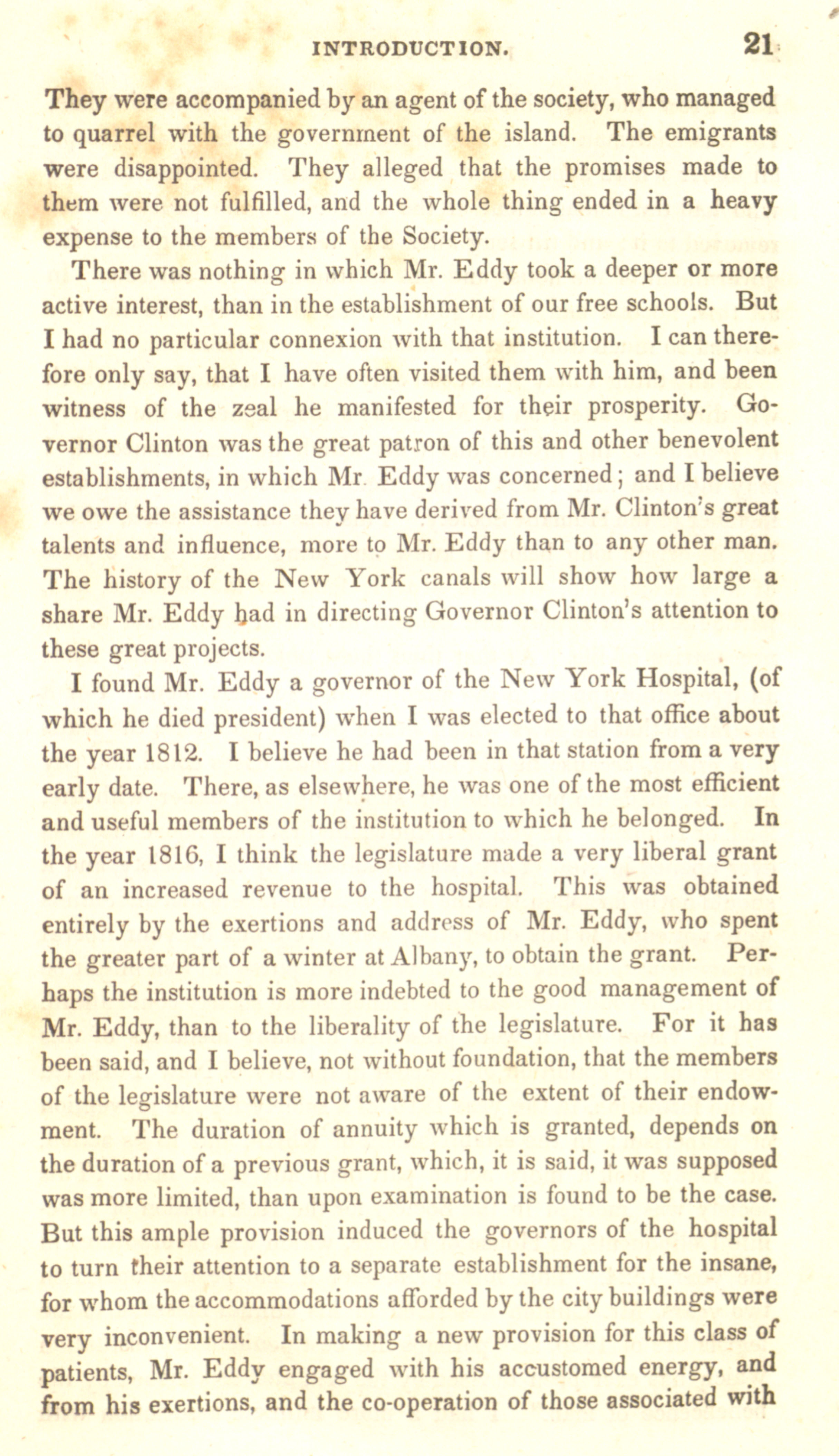They were accompanied by an agent of the society, who
managed
to quarrel with the government of the island. The
emigrants
were disappointed. They alleged that the promises made
to
them were not fulfilled, and the whole thing ended in a
heavy
expense to the members of the Society.
There was nothing in which Mr. Eddy
Person Information
active interest, than in the establishment of our free schools. But
I had no particular connexion with that institution. I can there-
fore only say, that I have often visited them with him, and been
witness of the zeal he manifested for their prosperity. Go-
vernor Clinton
Person Information
establishments, in which Mr Eddy
Person Information
we owe the assistance they have derived from Mr. Clinton
Person Information
talents and influence, more to Mr. Eddy
Person Information
The history of the New York canals will show how large a
share Mr. Eddy
Person Information
Person Information
these great projects.
I found Mr. Eddy
Person Information
Place Information
which he died president) when I was elected to that office about
the year 1812. I believe he had been in that station from a very
early date. There, as elsewhere, he was one of the most efficient
and useful members of the institution to which he belonged. In
the year 1816, I think the legislature made a very liberal grant
of an increased revenue to the hospital. This was obtained
entirely by the exertions and address of Mr. Eddy
Person Information
the greater part of a winter at Albany
Place Information
haps the institution is more indebted to the good management of
Mr. Eddy
Person Information
been said, and I believe, not without foundation, that the members
of the legislature were not aware of the extent of their endow-
ment. The duration of annuity which is granted, depends on
the duration of a previous grant, which, it is said, it was supposed
was more limited, than upon examination is found to be the case.
But this ample provision induced the governors of the hospital
to turn their attention to a separate establishment for the insane,
for whom the accommodations afforded by the city buildings were
very inconvenient. In making a new provision for this class of
patients, Mr. Eddy
Person Information
from his exertions, and the co-operation of those associated with

